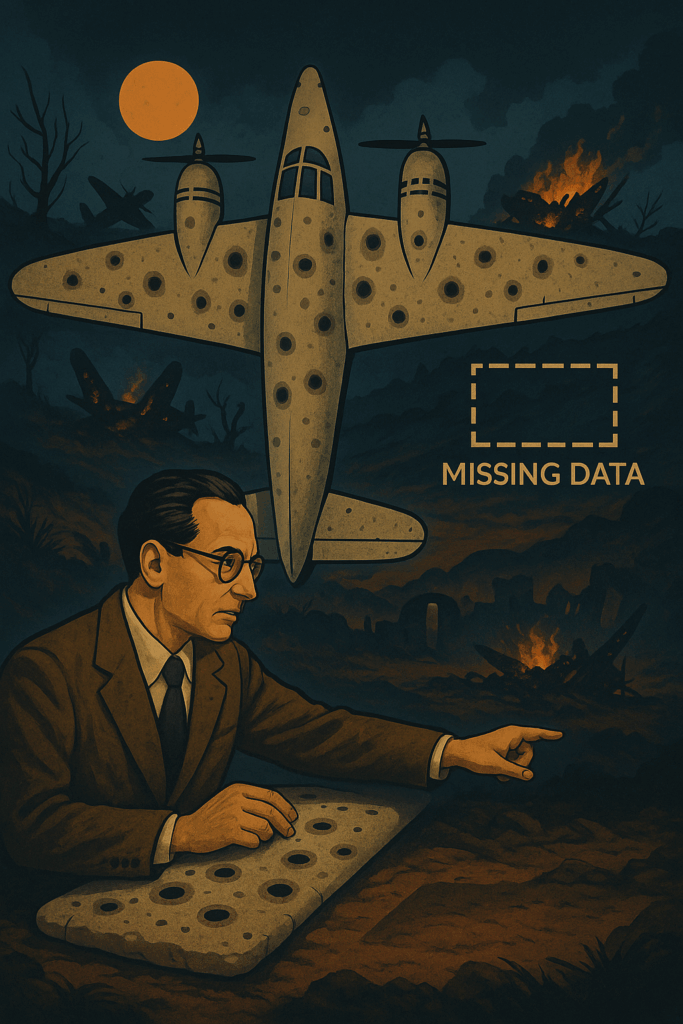Hello Data Disciples,
Let’s begin at the true origin of organized intelligence. Before Facebook Pixels. Before punch cards. Even before the Roman census that gave rise to empires and bureaucracies.
We’re talking about Sumer. Ancient Mesopotamia. Clay tablet kind of vibe.
One of the very first things these early civilizations did after inventing writing wasn’t poetry—it was data collection: censuses, tax records, grain inventories. Not glamorous, but visionary. They weren’t obsessed with statistics; they were focused on survival and scale.

What Data Misses: Lessons from World War II
Now let’s fast forward to the 1940s. World War II. Allied analysts studied the bullet holes on returning aircraft and suggested reinforcing those areas.

But Abraham Wald, a statistician, challenged that instinct. “You’re only seeing the planes that made it back,” he said. The bullet patterns told a story, but only a partial one. The fatal hits weren’t visible, because those planes never returned. That’s survivorship bias, and it’s as relevant now as it was then.
Today, we celebrate unicorn startups without acknowledging the thousands that failed quietly. We train AI models on cleaned-up, curated data—rarely pausing to ask who or what got left out.
We optimize for visibility, not truth.
Data in 2025: Precision or Illusion?
Welcome to the now. The AI arms race is well underway. Every tech platform offers “data-driven insights,” “smart dashboards,” or “predictive models.”
But how many of those insights are grounded in complete data? How many are filtered, biased, fragmented—or worse, built on outdated assumptions passed down through colonial records or unbalanced sensors?
It’s time to pause. To reframe.
June is Data Month on Mike’s Mind. And it’s not just about pipelines and pivot tables—though those count too. It’s about:
- Historical power structures hidden in data
- Cognitive traps like bias and misattribution
- Emerging tools that might actually help
- And AI hacks to sharpen your internal lie detector

Let this be your first reminder:
Data is never neutral. It mirrors both what we choose to measure, and what we ignore.
~Mike van Zandwijk
So be like Sumer. Seek clarity with intention.
And be like Wald. Question the absence.
Let’s cultivate a data culture that doesn’t just drive profits but builds resilience, empathy, and long-term truth. Because in a world run by algorithms;
those who shape the data shape the future.
Let’s get our hands dirty and our minds sharp.
If we want to build a better tomorrow, it won’t come from more dashboards alone. It will come from asking better questions. Recognizing invisible patterns.
And refusing to look away from what’s missing.
What's on your mind?